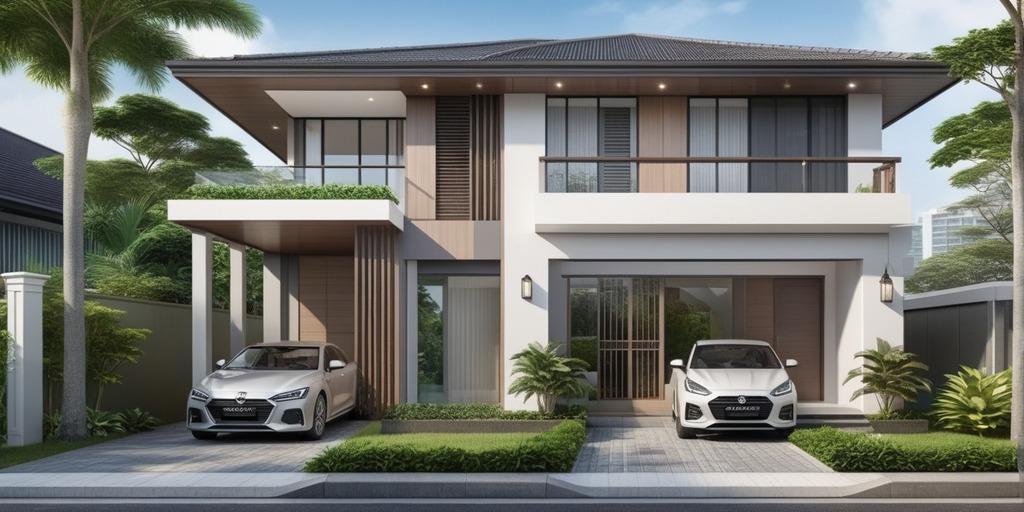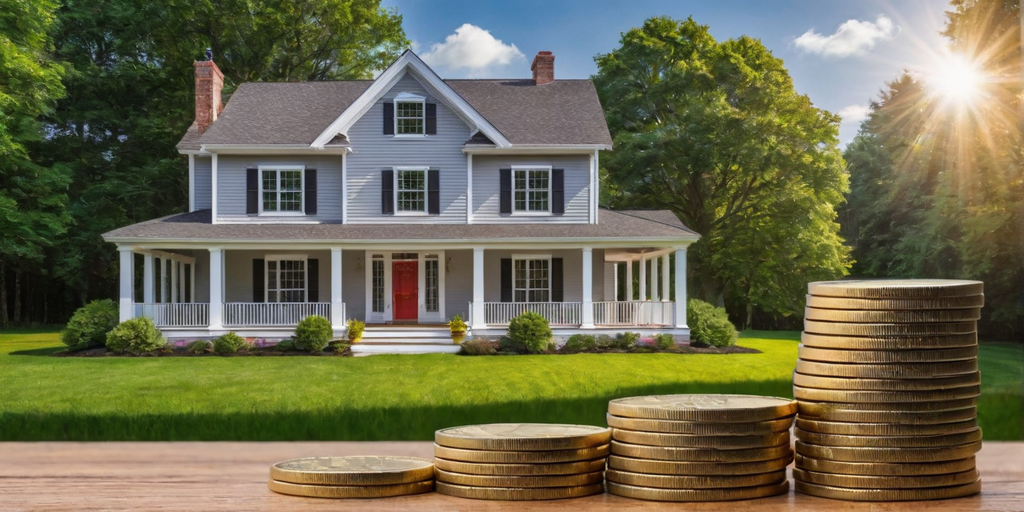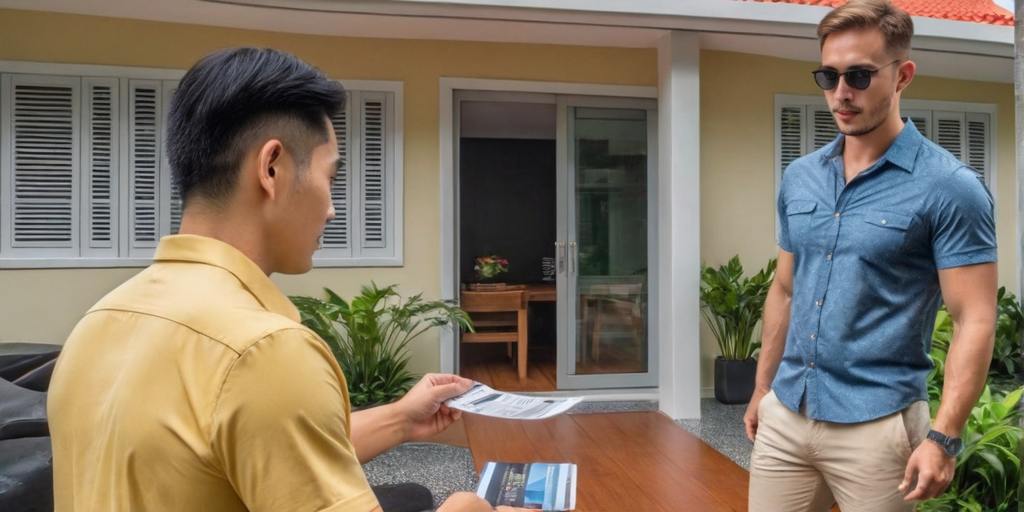Are you considering whether to buy or rent a house in Singapore? This is an important decision that requires careful consideration of several factors. Both options have their advantages and disadvantages, and the right choice for you will depend on your personal circumstances and financial situation. In this article, we will explore the pros and cons of buying versus renting a house in Singapore, and provide you with the information you need to make an informed decision.

Understanding the Singapore property market is crucial to making the right decision. The property market in Singapore is dynamic and constantly changing, with fluctuating prices and demand. The Financial Implications of Buying a house in Singapore include the down payment, monthly mortgage payments, and other expenses such as property taxes, maintenance fees, and insurance. Renting a house in Singapore also has its own Financial Implications, such as the monthly rent, security deposit, and other expenses such as utilities, maintenance fees, and insurance. In this article, we will compare the financial implications of buying versus renting a house in Singapore, so you can make an informed decision that is right for you.
Key Takeaways
- Understanding the Singapore property market is crucial to making the right decision.
- The Financial Implications of Buying a house in Singapore include the down payment, monthly mortgage payments, and other expenses such as property taxes, maintenance fees, and insurance.
- Renting a house in Singapore also has its own Financial Implications, such as the monthly rent, security deposit, and other expenses such as utilities, maintenance fees, and insurance.
Understanding the Singapore Property Market

If you’re considering buying or renting a house in Singapore, it’s important to understand the Singapore property market. Here are some key factors to keep in mind:
Types of Housing Available in Singapore
In Singapore, there are several types of housing available, including HDB flats, condos, and landed properties. HDB flats are public housing flats that are subsidized by the government and are generally more affordable than private properties. Condos are private properties that offer more facilities and amenities, but are also more expensive. Landed properties refer to houses that come with a piece of land, such as bungalows, semi-detached houses, and terrace houses.
Government Policies and Subsidies
The Singapore government has implemented various policies and subsidies to make housing more affordable for Singaporeans. For example, the government provides grants and subsidies for first-time homebuyers, such as the CPF Housing Grant and the Additional CPF Housing Grant. There are also cooling measures in place to prevent property prices from rising too quickly, such as the Additional Buyer’s Stamp Duty (ABSD) and Seller’s Stamp Duty (SSD).
Market Trends and Property Prices
The Singapore property market is influenced by various factors, such as interest rates, inflation, and supply and demand. Property prices in Singapore have been on the rise in recent years, but the government’s cooling measures have helped to stabilize the market. It’s important to keep an eye on market trends and property prices when deciding whether to buy or rent a house in Singapore.
Overall, the Singapore property market offers a range of options for those looking to buy or rent a house. By understanding the types of housing available, government policies and subsidies, and market trends and property prices, you can make an informed decision about whether buying or renting is the right choice for you.
The Financial Implications of Buying

If you are considering buying a house in Singapore, it is important to understand the financial implications of this decision. Here are some key factors to consider:
Initial Costs and Mortgages
When you buy a house, you will need to make an initial financial commitment. This includes the down payment, which is typically 20% of the purchase price, as well as stamp duties and other upfront costs. You will also need to take out a mortgage, which is a type of home loan that allows you to borrow money to pay for the property.
The interest rate on your mortgage will determine how much you pay in mortgage payments each month. It is important to shop around for the best mortgage rates and terms to ensure that you get the most favourable deal.
Ongoing Costs and Potential Gains
Owning a house comes with ongoing costs, such as maintenance, property tax, and insurance. However, it can also be an investment that can provide potential gains in the form of capital appreciation and equity.
When you buy a house, you are essentially investing in your own property. As the value of the property increases over time, so does your equity. This can be a valuable source of savings and can help you build wealth over the long term.
CPF Usage and Home Ownership
If you are a Singaporean citizen or permanent resident, you can use your CPF monies to pay for the down payment and mortgage payments on your home. This can help you achieve home ownership more quickly and with less financial strain.
However, it is important to consider the impact of using your CPF monies on your retirement savings. You should work with a financial advisor to determine the best approach for your individual situation.
Overall, buying a house in Singapore is a significant financial commitment. However, it can also be a valuable investment that can provide potential gains and help you achieve home ownership. By understanding the financial implications of buying a house, you can make an informed decision that meets your individual needs and goals.
The Financial Implications of Renting

Renting a property in Singapore can be a great option if you are not yet ready to commit to a long-term investment. Here are some key financial implications to consider before signing a rental agreement.
Understanding Rental Agreements
When you rent a property, you will typically sign a tenancy agreement that outlines the terms of the rental agreement. This agreement will typically include details such as the monthly rent, security deposit, length of tenancy, and other important information.
It is important to carefully read and understand the terms of the rental agreement before signing it. Make sure you understand the length of the tenancy and any penalties for breaking the lease early. You should also be aware of your responsibilities as a tenant, such as maintaining the property and paying for any damages you cause.
Costs of Renting and Flexibility
One of the main advantages of renting a property is the flexibility it offers. If you are not yet ready to commit to a long-term investment, renting can be a great option. You can typically rent a property for a short-term commitment of three months or more, depending on the rental market.
When renting, you will typically need to pay a security deposit, which is usually equal to one or two months’ rent. You will also need to pay monthly rent, which can vary depending on the location and condition of the property.
While renting does not offer the long-term investment potential of buying a property, it can be a great way to save money in the short-term. You will not need to worry about maintenance costs or other expenses associated with owning a property.
In summary, renting a property in Singapore can be a great option if you are not yet ready to commit to a long-term investment. Make sure you carefully read and understand the terms of the rental agreement before signing it, and be aware of the costs and flexibility that renting offers.
Comparing Lifestyles: Renting vs. Buying

When deciding whether to rent or buy a house in Singapore, it’s important to consider how each option affects your lifestyle. Here are some factors to keep in mind:
Mobility and Commitment Levels
Renting a house in Singapore can provide more flexibility than buying a house. If you have a job that requires you to move frequently or if you’re not sure how long you’ll be staying in Singapore, renting may be the better option. You can easily move to a new location without having to worry about selling your house.
On the other hand, buying a house requires a greater level of commitment. You’ll need to be prepared to stay in the same location for several years to make buying a house worth the investment. If you’re not sure how long you’ll be staying in Singapore or if you have overseas work commitments, buying may not be the best option for you.
Freedom to Modify and Personalise
One of the benefits of renting a house in Singapore is that you’ll have more freedom to modify and personalise your living space. You can paint the walls, hang pictures, and make other changes to make the house feel more like home. However, you’ll need to check with your landlord first to make sure that any modifications are allowed.
If you buy a house in Singapore, you’ll have complete freedom to modify and renovate your living space. You can make any changes you want without having to worry about getting permission from a landlord. This level of freedom can be appealing to those who want complete control over their living space.
In conclusion, when deciding whether to rent or buy a house in Singapore, it’s important to consider your level of commitment, mobility, and desire for personalisation. If you’re not sure how long you’ll be staying in Singapore or if you want more flexibility, renting may be the better option. If you’re looking for a long-term investment and complete freedom to modify your living space, buying may be the better option.
Making the Decision: Factors to Consider

When deciding whether to rent or buy a house in Singapore, there are several factors to consider. This section will explore two main factors: long-term planning and investment goals, and personal circumstances and preferences.
Long-Term Planning and Investment Goals
One of the most important factors to consider when deciding whether to rent or buy a house is your long-term planning and investment goals. If you are looking for a long-term investment and want to build equity in a property, buying a house may be the better option. Owning a property allows you to build equity over time, which can help you build wealth and increase your net worth. Additionally, buying a house can provide stability and security, as you will have a fixed monthly mortgage payment and won’t have to worry about rent increases.
On the other hand, if you are not sure where you want to live in the long-term, or if you are not ready to commit to a long-term investment, renting may be the better option. Renting provides flexibility, as you can move to a new location or a new property without having to worry about selling your current home. Additionally, renting can be more affordable in the short-term, as you won’t have to worry about a down payment or other upfront costs associated with buying a house.
Personal Circumstances and Preferences
Another important factor to consider when deciding whether to rent or buy a house is your personal circumstances and preferences. If you are a single person or a young couple, renting may be the better option, as you may not need the space or the long-term investment that comes with buying a house. Additionally, if you have a job that requires you to move frequently, renting may be the better option, as it provides flexibility and allows you to move easily.
On the other hand, if you are a family or a young adult looking to settle down, buying a house may be the better option. Owning a property provides stability and security, and can be a good long-term investment. Additionally, if you have a stable income and are able to afford a down payment and other upfront costs associated with buying a house, it may be a good investment for your future.
Overall, when deciding whether to rent or buy a house in Singapore, it is important to consider your long-term planning and investment goals, as well as your personal circumstances and preferences. By weighing the pros and cons of each option and considering your own needs and goals, you can make an informed decision that is right for you.
Additional Considerations for Foreigners

As a foreigner, buying or renting a property in Singapore comes with its own set of considerations. Here are some additional factors to keep in mind when making your decision.
Eligibility and Restrictions
Before you can purchase a property in Singapore, you must be eligible to do so. As a foreigner, you can buy a private residential property such as a condominium unit or landed property, but you are not allowed to purchase HDB flats. In addition, there are restrictions on the type of private properties you can buy. For example, you can only buy a landed property if you are a permanent resident (PR) or have special permission from the government.
Investment Potential for Non-Residents
Buying a property in Singapore can be a good investment for non-residents. The property market in Singapore has been stable over the years, and there is potential for capital appreciation. In addition, you can earn rental income by renting out your property. However, it is important to do your research and work with a reputable property agent to ensure that you make a sound investment decision.
Navigating the Singapore Rental Market
If you decide to rent a property in Singapore, it is important to understand the rental market. The rental market in Singapore is highly competitive, and rental prices can vary depending on factors such as location, property type, and amenities. Working with a property agent can help you navigate the rental market and find a property that meets your needs and budget.
In conclusion, as a foreigner, there are additional considerations to keep in mind when buying or renting a property in Singapore. By understanding the eligibility and restrictions, investment potential, and rental market, you can make an informed decision that meets your needs and goals.
Frequently Asked Questions

What are the thrilling benefits of purchasing a home over renting in Singapore?
Owning a home in Singapore comes with a lot of advantages. First, you get to enjoy the freedom that comes with owning your own property. You can customise the house to your liking and make any changes that you want. Additionally, owning a home in Singapore is a great investment opportunity. The value of properties in Singapore has been on the rise over the years, and owning a home can be a great way to build wealth.
Can you feel the rush of using your CPF to buy property instead of spending on rent?
Yes, you can! One of the exciting things about purchasing a home in Singapore is that you can use your CPF savings to finance the purchase. This means that you can use the money that you would have otherwise spent on rent to invest in your own property. This is a great way to build your wealth and secure your financial future.
Why are residents bursting with excitement to rent in Singapore’s dynamic housing market?
Renting in Singapore’s dynamic housing market is an exciting prospect for many people. The rental market in Singapore is diverse, and there are many different types of properties available to rent. This means that you can find a property that suits your needs and budget. Additionally, renting can be a great way to experience different neighbourhoods and lifestyles in Singapore.
How can you leap into affording your own house in the vibrant Singaporean landscape?
Affording your own house in the vibrant Singaporean landscape may seem daunting, but it is definitely achievable. There are a few things that you can do to make this dream a reality. First, you can start by saving for a down payment. This will help you qualify for a mortgage and make your monthly payments more affordable. Additionally, you can consider purchasing a smaller property or one that requires some renovation. This can help you get a foot in the door of the property market.
What makes the option of rent-to-own properties in Singapore so exhilarating?
Rent-to-own properties in Singapore can be an exciting option for those who want to own a home but may not have the necessary funds upfront. This option allows you to rent a property for a set period of time, after which you have the option to purchase the property. This can be a great way to build equity in a property while also giving you time to save for a down payment.
Are you ready to discover the advantages of condo ownership versus renting in Singapore?
Condo ownership in Singapore comes with many advantages. First, you get to enjoy the amenities that come with living in a condo, such as a swimming pool, gym, and security. Additionally, owning a condo is a great investment opportunity, as the value of properties in Singapore has been on the rise over the years. On the other hand, renting a condo can be a great way to experience the lifestyle without the financial commitment of ownership.

